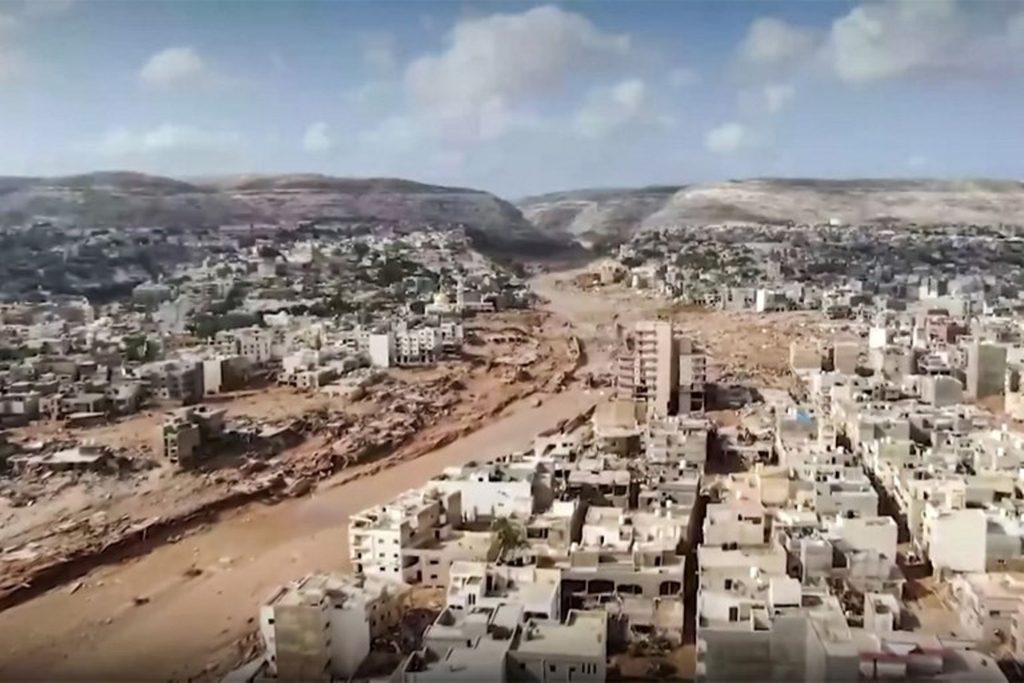Belgium will be releasing an additional €1 million in emergency humanitarian aid for Libya, where devastating floods in the eastern city of Derna have already killed at least 5,300 people.
Federal Minister for Development Cooperation Caroline Gennez announced the additional budget on Thursday morning. The €1 million will go to the Disaster Response Emergency Fund (DREF), which supports local Red Cross branches worldwide after natural and climatic disasters.
Meanwhile, the Libyan Red Crescent Society, one of their local partners, has set up a crisis centre in Dresna. Its rescue teams search for victims, give first aid to the injured and distribute water, food and tents to victims.
"Local organisations are immediately deployable and can best assess the needs on the ground. More than half of our humanitarian relief budget is deployed in this 'flexible' way. Belgium mobilises resources, which are then deployed by humanitarian organisations according to people's needs. This allows them to respond quickly and efficiently in emergency situations like this," Gennez explained.
'Hallucinatory scenes'
Storm Daniel, which caused disastrous flooding in Greece, and torrential rain in Bulgaria and Turkey last week. The storm then moved further west across the Mediterranean, where it increased in strength, turning into 'medicane' Daniel – a Mediterranean hurricane.
Flash flooding and powerful muddy currents, triggered by heavy rains, wreaked havoc on communities in the east of the country. The storms caused two dams to break in Derna on Sunday, leading to a huge tidal wave.
"The images reaching us from Libya are hallucinatory," said Gennez. "Entire neighbourhoods have been washed away. The city is virtually destroyed. Solidarity from the international community is absolutely necessary."
There is still much uncertainty about the balance of the disaster: the eastern government has said that 5,300 have died so far, while the internationally recognised government in the west of the country puts the death toll at 6,000.
The death toll could reach up to 20,000 in the coming days, based on the number of districts that were wiped out. Before the disaster, some 125,000 people lived in the eastern coastal city. More than 10,000 people are still missing, while some 34,000 people are replaced as a result of the catastrophic floods, left without basic necessities.
Related News
- Flanders to send €200,000 in emergency aid to Morocco
- 'I've lost everything': Death toll from Morocco earthquake reaches 2,000
The International Rescue Committee (IRC) has urgently called for more international assistance to address the catastrophic humanitarian crisis unfolding in the country.
"Urgent emergency shelter is needed for those unable to return to their homes, and psychosocial support for those who have seen their lives literally washed away," Elie Abouaoun, IRC Libya Country Director, said.
Phone lines in the affected areas are down, while the destruction of roads and bridges continues to hamper the ability of aid agencies to enter affected cities. There are also fears about the possibility of waterborne diseases taking hold after sanitation and hygiene infrastructure was severely damaged.

